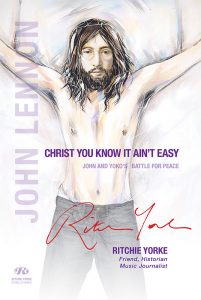
31 Aug John Lennon Testifies Against the Nixon Administration
On this day in 1974, John Lennon testifies against the Nixon administration
Lennon was first deported in 1969 due to a UK marijauna conviction from 1968. The Board of Immigration voted four to nil, claiming “we are not unsympathetic to the plight of the respondent and others in a similar situation under the immigration laws.”
In 1971, he and Yoko Ono decided to move to New York City, and he applied for citizenship in that year. President Richard Nixon had other ideas though, and ordered him to leave the country in 1972, a decision Lennon fought back against. His appeals earned him several temporary visas allowing him to remain in the country while his case was settled in court. Shortly after, the Watergate scandal broke, and by early 1974, Nixon resigned from office, though this did not end Lennons immigration struggles.
He received another deportation order on July 18 of 1974, again citing his 1968 marijuana conviction as the reason, and again appealed against the notice. On August 31, the ex-Beatle testified against the Nixon administration, claiming he had been deliberately targeted due to his involvement in anti-war activities, in particular against the Vietnam War and for his 1969 peace campaign. He also claimed that he had been surveilled by the government, being followed by agents of the CIA and FBI, and having his phone wiretapped.
These claims against the government were later proven to be true with the release of the the FBI’s files in 2000, after a near 20 year battle to have them released under a Freedom of Information request by historian Jon Wiener. The files showed Lennon had indeed been under surveillance in 1971 and 1972 for his “revolutionary” and anti-war views that supposedly threatened to undermine the Nixon administration. Wiener was outraged by his findings, later claiming “The FBI is supposed to catch criminals, not stop people from criticising the President. This is an example of FBI harassment, the purpose of which was to silence Lennon as a voice of the peace movement.”
Back in 1974 though, Lennons testimonial had little effect on his immigration case and he continued to fight for his citizenship for several years. In 1975 he was granted temporary non-priority deportation status due to Ono’s pregnancy and finally in 1976, the decision to deport him was overturned, granting him a green card and full US citizenship.


